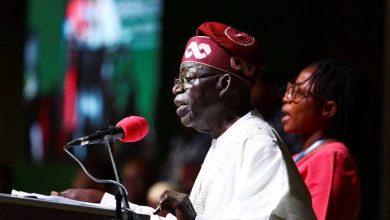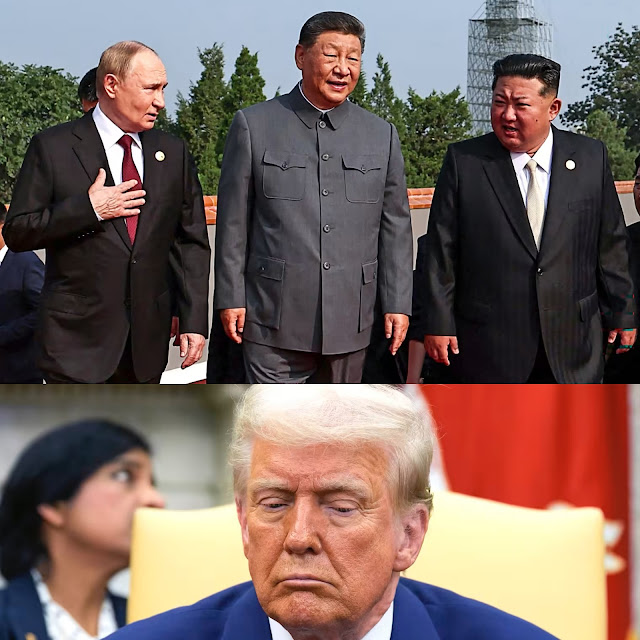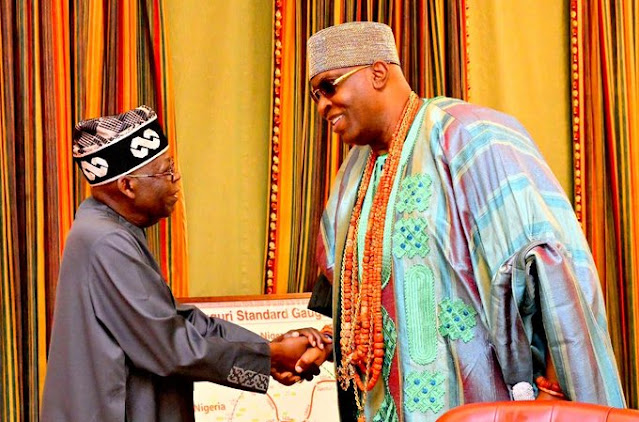On September 3, 2025, the Nigerian Presidency issued a statement clarifying President Bola Ahmed Tinubu’s recent remarks on the nation’s fiscal performance, addressing widespread speculation and criticism regarding claims that Nigeria had surpassed its 2025 revenue target by August. The clarification, released through the State House in Abuja, emphasized that the President’s comments were specifically about the robust growth in non-oil revenue collections, not a blanket assertion covering all government earnings. This statement comes at a critical time as Nigeria navigates economic reforms aimed at reducing dependency on oil, boosting fiscal discipline, and addressing longstanding infrastructural and social challenges. The Presidency’s remarks highlight a transformative shift in Nigeria’s revenue base, driven by reforms in tax administration, compliance, and digitalization, with total collections reaching N20.59 trillion from January to August 2025, a 40.5% increase from the previous year. This article provides an in-depth analysis of the clarification, its implications, and the broader context of Nigeria’s economic trajectory under Tinubu’s administration.
Background: Tinubu’s Revenue Claims and Public Reaction
The controversy surrounding President Tinubu’s revenue claims began during a meeting with a delegation from The Buhari Organisation at the Presidential Villa in Abuja on September 2, 2025. Addressing the group, led by Senator Tanko Al-Makura, Tinubu declared that Nigeria had already met its 2025 revenue target by August, effectively reducing the country’s reliance on borrowing to finance its budget. He stated, “We have met our revenue target. Nigeria is not borrowing again. Nobody is trading pieces of paper for exchange rate anymore. The naira is stabilizing. What we need now is to build the infrastructure for export and import, to create jobs and opportunities for our people. That is my guarantee.”
This bold assertion sparked a mix of optimism and skepticism across Nigeria’s political and economic spheres. Supporters of the administration hailed the claim as evidence of successful economic reforms, particularly in diversifying revenue sources away from oil. Critics, however, questioned the veracity of the statement, arguing that it overstated the government’s achievements and failed to address the persistent economic hardships faced by ordinary Nigerians. Former presidential candidate Peter Obi, for instance, congratulated the President but urged that the revenue gains translate into tangible improvements in education, healthcare, infrastructure, and poverty reduction, stating, “True economic stability cannot be measured merely by revenue milestones but by improvements in the lives of our citizens.”
The Presidency’s clarification, issued on September 3, 2025, sought to address these concerns by providing context and data to support Tinubu’s claims. The statement underscored that the President’s remarks were specific to non-oil revenues, which have seen unprecedented growth due to deliberate policy interventions. This clarification is significant not only for its immediate political implications but also for its reflection of Nigeria’s broader economic strategy under Tinubu’s leadership.
Details of the Clarification: Non-Oil Revenue as the New Engine
The Presidency’s statement provided detailed insights into Nigeria’s fiscal performance from January to August 2025, highlighting the pivotal role of non-oil revenues in driving economic growth. According to the State House, total collections during this period reached N20.59 trillion, a 40.5% increase from the N14.6 trillion recorded in the same period in 2024. Of this amount, non-oil revenues accounted for N15.69 trillion, representing three out of every four naira collected. This marks a fundamental shift in Nigeria’s fiscal landscape, reducing the country’s historical dependence on oil as the dominant revenue source.
The statement attributed this growth to a series of reforms aimed at improving fiscal discipline, strengthening compliance, and leveraging technology to enhance revenue collection. Key among these reforms are:
Digitization of Tax Administration: The introduction of digital platforms for tax filings and payments has streamlined processes, reduced leakages, and increased compliance. Automated systems have made it easier for businesses and individuals to meet their tax obligations, contributing to higher collections.
Customs Service Overperformance: The Nigerian Customs Service (NCS) collected N3.68 trillion in the first half of 2025, surpassing its target by N390 billion and achieving 56% of its full-year goal. This success reflects systemic changes, including automation and tighter enforcement, rather than one-off windfalls.
Broadened Compliance: Efforts to expand the tax base and improve compliance have brought more businesses and individuals into the tax net, particularly in the informal sector. This has been supported by policies aimed at simplifying tax processes and reducing the burden on low-income earners.
Fiscal Policy Reforms: The administration’s tax reforms, signed into law in June 2025, have eliminated over 50 small, overlapping taxes and introduced measures to protect low-income households. For example, individuals earning up to N1 million annually are now exempt from income tax, and essential goods like food, healthcare, and education are no longer subject to Value Added Tax (VAT). These reforms aim to create a fairer and more efficient tax system while boosting revenue.
The Presidency also highlighted record disbursements from the Federation Account Allocation Committee (FAAC), with monthly allocations to states and local governments surpassing N2 trillion in July 2025 for the first time in Nigeria’s history. This increase provides subnational governments with greater fiscal space to address local priorities such as food security, infrastructure, and social services. However, the statement acknowledged that these gains fall short of the administration’s ambitions for transformative investments in education, healthcare, and infrastructure, with efforts underway to bridge this gap.
Economic Reforms and Their Impact
The clarification comes against the backdrop of President Tinubu’s broader economic reforms, which have been both praised and criticized since he assumed office in May 2023. Key among these reforms are the removal of fuel subsidies, the floating of the naira, and efforts to reduce Nigeria’s reliance on borrowing. These measures, often referred to as “Tinubunomics,” aim to address structural weaknesses in Nigeria’s economy and position the country for sustainable growth.
Fuel Subsidy Removal: The abrupt end to fuel subsidies in May 2023 led to a tripling of petrol prices, triggering a cost-of-living crisis that saw food prices rise by 35%. While the policy freed up significant resources for infrastructure and social services, it has been criticized for its immediate impact on Nigerians’ purchasing power.
Naira Floatation: The decision to allow the naira to float against major currencies resulted in a significant depreciation, with the exchange rate reaching N1,800 per dollar in March 2024 before stabilizing at N1,525 by August 2025. This reform has boosted non-oil exports, with a 19.62% year-on-year growth in the first half of 2025, but it has also contributed to inflation and economic hardship.
Debt Management: The administration has reduced Nigeria’s reliance on borrowing, with debt servicing dropping from nearly 100% of revenue in 2022 to under 40% in 2024. This has been achieved through the elimination of Ways and Means financing and subsidy payments, alongside increased revenue collections.
These reforms have reshaped Nigeria’s fiscal foundations, with non-oil revenues now accounting for the majority of government income. The Presidency’s spokesperson, Bayo Onanuga, emphasized this shift, stating, “For the first time in decades, oil is no longer the dominant driver of government revenue. The combination of reforms, compliance, and digitization powers a more resilient economy.”
Political and Public Reactions
The Presidency’s clarification has elicited varied responses from stakeholders across Nigeria’s political spectrum. Supporters of the administration, particularly within the APC, have lauded the revenue growth as evidence of Tinubu’s visionary leadership. They argue that the focus on non-oil revenues aligns with the administration’s goal of diversifying the economy and reducing vulnerability to global oil price fluctuations. The record FAAC allocations have also been hailed as a boon for state and local governments, enabling them to address pressing developmental needs.
However, critics, including opposition figures and civil society groups, have raised concerns about the tangible impact of these revenue gains on ordinary Nigerians. Peter Obi’s call for the government to channel excess revenue into health, education, and poverty alleviation reflects a broader sentiment that fiscal achievements must translate into improved living standards. Many Nigerians continue to grapple with high inflation, unemployment, and rising costs of basic goods, which have been exacerbated by the subsidy removal and naira devaluation.
Analysts have also questioned the sustainability of the revenue growth, noting that inflation and foreign exchange revaluation have contributed to the nominal increase in collections. While the Presidency insists that the uplift is primarily reform-driven, skeptics argue that without addressing underlying economic challenges, such as infrastructure deficits and insecurity, the gains may not lead to long-term prosperity.
Broader Economic Context
The clarification must be viewed within the context of Nigeria’s broader economic challenges and opportunities. The country’s economy has faced significant headwinds in recent years, including record debt, high inflation, and declining foreign direct investment. Tinubu inherited a struggling economy with a GDP growth rate of 3.1% in 2022 and a trade surplus that paled in comparison to previous years. Public debt has grown tenfold over the past decade, and debt servicing consumed 90% of government revenue in 2023, underscoring the need for fiscal reform.
The administration’s focus on non-oil revenues aligns with its goal of increasing Nigeria’s tax-to-GDP ratio from 10% to 18% by 2026, a target that remains ambitious given the African average of 16–18%. The tax reforms signed into law in June 2025, which include exemptions for low-income earners and essential goods, aim to balance revenue generation with social equity. However, concerns about overzealous enforcement by tax authorities could undermine these efforts, as noted by economist Emmanuel Idenyi.
The stabilization of the naira, driven by increased oil receipts, diaspora remittances, and the clearing of foreign exchange backlogs, has also bolstered investor confidence. The currency’s recovery from N1,800 to N1,525 per dollar in five months reflects the impact of market-driven reforms, though challenges such as inflation and consumer purchasing power remain.
Challenges and Opportunities
The Presidency’s clarification highlights both the achievements and challenges of Tinubu’s economic agenda. The growth in non-oil revenues offers an opportunity to fund critical investments in infrastructure, education, and healthcare, which are essential for sustainable development. The record FAAC allocations provide states with the resources to address local needs, potentially reducing regional disparities. However, several challenges must be addressed to ensure that these gains translate into tangible benefits:
Implementation and Transparency: The government must ensure that revenue gains are transparently allocated to priority sectors. Peter Obi’s call for verifiable and measurable outcomes underscores the need for accountability in public spending.
Economic Hardships: The cost-of-living crisis, driven by subsidy removal and naira devaluation, continues to affect millions of Nigerians. Addressing inflation and unemployment will be critical to sustaining public support for the administration’s reforms.
Sustainability: While non-oil revenues have driven fiscal growth, the government must continue to expand the tax base and address structural inefficiencies to ensure long-term sustainability.
Public Trust: Building trust in the tax system and government institutions is essential for maintaining compliance and achieving the 18% tax-to-GDP target.
The Road Ahead
As Nigeria moves forward, the Tinubu administration faces the challenge of translating fiscal gains into visible improvements in the lives of its citizens. The Presidency’s clarification serves as a reminder of the progress made in diversifying revenue sources, but it also underscores the need for sustained effort to address economic and social challenges. The government’s focus on infrastructure development, as evidenced by the N54.99 trillion “Budget of Restoration” signed in February 2025, aims to create jobs and stimulate growth, but its success will depend on efficient implementation and prudent financial management.
The emphasis on non-oil revenues also positions Nigeria to better withstand global economic shocks, such as fluctuations in oil prices. By investing in agriculture, technology, and manufacturing, the government can create a more resilient economy that benefits all regions. The North East Governors’ Forum, for instance, has called for infrastructure projects to boost connectivity and security, reflecting the need for regional collaboration in leveraging these revenue gains.
Conclusion
The Presidency’s clarification of President Tinubu’s revenue claims provides a nuanced perspective on Nigeria’s fiscal achievements in 2025. By emphasizing the growth in non-oil revenues, the administration has highlighted its commitment to economic diversification and fiscal discipline. The record N20.59 trillion collected from January to August 2025, driven by reforms in tax administration and compliance, marks a significant milestone in Nigeria’s economic journey. However, the challenge remains to ensure that these gains translate into tangible improvements in infrastructure, healthcare, education, and poverty alleviation.
As Nigeria navigates its complex economic landscape, the Tinubu administration must balance short-term challenges with long-term goals. The success of its reforms will depend on transparent governance, effective implementation, and sustained public engagement. For now, the clarification serves as a call to action for all stakeholders to work together to build a more prosperous and equitable Nigeria, where the benefits of economic growth are felt by all citizens.






